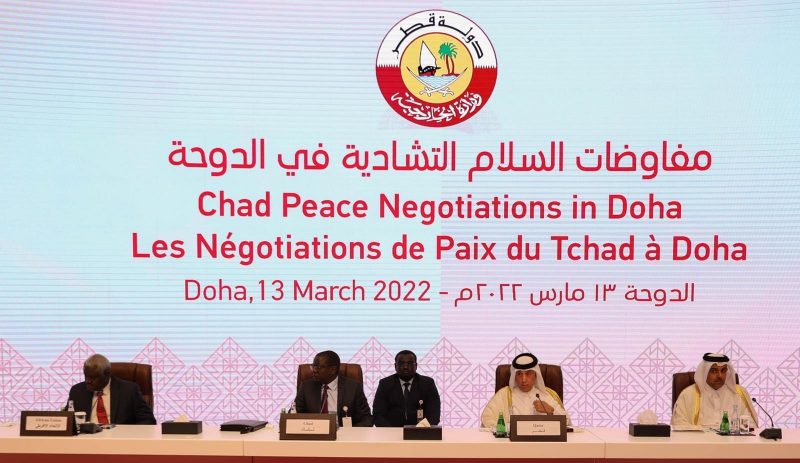The talks in Doha and the national dialogue aim to find a political resolution following years of unrest in Chad.
The Chadian pre-dialogue in Qatar has moved forward as political and military sides agreed on forming a delegation at the talks, a source has told Doha News.
The Gulf state has hosted the negotiations between Chadian sides since 13 March in a an effort to break a political deadlock in the country.
The talks hope to pave the way for long-promised ‘free and transparent’ elections ahead of the delayed national dialogue. The national talks were initially scheduled to take place on 10 May before being postponed.
Another source with knowledge told Doha News that the unified delegation was formed in response to the request of the pre-dialogue’s mediator, Qatar.
The unified team comprises the Doha, Qatar and Rome groups that were formed at the beginning of the talks per Qatar’s request from the armed movements. The source said that the delegation was created “as the governmental team cannot negotiate with representatives from 52 movements.”
“Now the main step is to merge the three groups and form a single delegation and the direct talks between the two sides are going to begin, the previous talks were indirect,” said the source.
On 6 May, a draft government agreement was proposed to the rebel groups to speak with a unified voice, as Radio France Internationale (RFI) previously reported. With the formation of the single team, the mediator can better hold talks between the armed movements and the Transitional Military Council (TMC).
RFI’s report had stated that the two sides would be able to clearly provide “their points of convergence and divergence.”
The sources did not mention any details regarding the dates of the upcoming meetings in Doha.
Chad’s political turmoil
The talks in Doha and the national dialogue aim to find a political resolution following years of unrest in Chad. The situation was worsened following the killing of former President Idriss Deby on 20 April, 2021.
The former leader was killed during fighting between government and rebels from the Libya-based Front for Change and Concord in Chad (FACT) group. Deby’s son, Mahamat Idriss Deby, later became the President of Chad’s TMC.
Deby had named a 40-member transitional government in May that was set to remain in office until the end of 2022. He also formed the 93-member interim parliament in September, the National Transitional Council (NTC).
People in Chad have been calling for a civilian-led transition. Human Rights Watch (HRW) had also expressed its concern over a worsening human rights situation in the country.
“Chad’s allies should tell him [Deby] that the military council; should reverse course, respect and protect Chadians’ right to peaceful protest,” said HRW last month.
Qatar had previously held talks with the UN, France, and the African Union to ensure their support in monitoring a possible agreement between all Chadian sides.
The Gulf state also consulted the US over the potential agreement as they try to involve the Military Command Council for the Salvation of the Republic (CCSMR) in the talks.
Beyond Chad, Qatar has long mediated between conflicting sides in different parts of the world.







